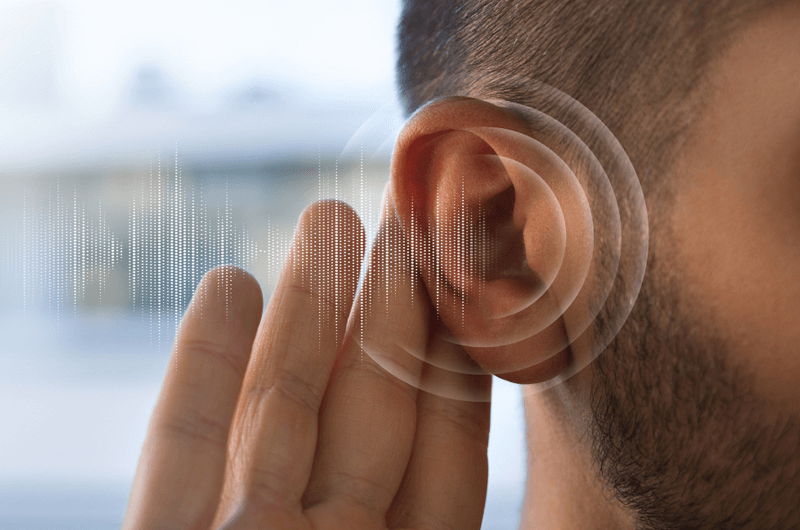Hearing loss may be caused by caused by noise, aging, disease, and heredity. Trouble hearing has far-reaching impacts on social interaction, family connection, and workplace productivity. According to the National Institutes of Health, approximately 15% of American adults (37.5 million) aged 18 and over report some type of hearing problem, with the greatest amount of hearing loss in the 60 to 69 age group. Coding and reimbursement for audiology is changing with new reporting systems and ICD-10 code changes. Medical billing and coding outsourcing can ensure accurate use of audiology and speech-language pathology related billing codes for appropriate reimbursement. In 2017, there are several new codes including separate codes for different type of hearing loss in different ears.
Coding Hearing Loss in 2017 – Points to Note
- There are new codes for conductive hearing loss in one ear, and a sensorineural or mixed hearing loss in the other ear.
- H90-H94, Other disorders of the ear are the codes for hearing loss.
- New codes have been added for pulsatile tinnitus (H93.A series)
- There are unilateral (left or right) and bilateral options.
- There is a separate code for unspecified laterality in each subcategory.
- Subcategory (H91.2) should be used to report sudden idiopathic hearing loss.
New ICD-10 Hearing Loss Codes
Other disorders of ear (H90-H94)
H90.0 Conductive hearing loss, bilateral
H90.1 Conductive hearing loss, unilateral with unrestricted hearing on the contra-lateral side
H90.11Conductive hearing loss, unilateral, right ear, with unrestricted hearing on the contralateral side
H90.12 Conductive hearing loss, unilateral, left ear, with unrestricted hearing on the contralateral side
H90.2 Conductive hearing loss, unspecified
Conductive deafness NOS
H90.3 Sensorineural hearing loss, bilateral
H90.4 Sensorineural hearing loss, unilateral with unrestricted hearing on the contralateral side
H90.41 Sensorineural hearing loss, unilateral, right ear, with unrestricted hearing on the contralateral side
H90.42 Sensorineural hearing loss, unilateral, left ear, with unrestricted hearing on the contralateral side
H90.5 Unspecified sensorineural hearing loss
H90.6 Mixed conductive and sensorineural hearing loss, bilateral
H90.7 Mixed conductive and sensorineural hearing loss, unilateral with unrestricted hearing on the contralateral side
H90.71 Mixed conductive and sensorineural hearing loss, unilateral, right ear, with unrestricted hearing on the contralateral side
H90.72 Mixed conductive and sensorineural hearing loss, unilateral, left ear, with unrestricted hearing on the contralateral side
H90.8 Mixed conductive and sensorineural hearing loss, unspecified
The new 90.A series of codes indicate different types of hearing loss in each ear and should be reported with the following codes:
H90.A Conductive and sensorineural hearing loss with restricted hearing on the contralateral side
H90.A1 Conductive hearing loss, unilateral, with restricted hearing on the contralateral side
H90.A11 Conductive hearing loss, unilateral, right ear with restricted hearing on the contralateral side
H90.A12 Conductive hearing loss, unilateral, left ear with restricted hearing on the contralateral side
H90.A2 Sensorineural hearing loss, unilateral, with restricted hearing on the
contralateral side
H90.A21 Sensorineural hearing loss, unilateral, right ear, with restricted hearing on the contralateral side
H90.A22 Sensorineural hearing loss, unilateral, left ear, with restricted hearing on the contralateral side
H90.A3 Mixed conductive and sensorineural hearing loss, unilateral with restricted
hearing on the contralateral side
H90.A31 Mixed conductive and sensorineural hearing loss, unilateral, right ear with restricted hearing on the contralateral side
H90.A32 Mixed conductive and sensorineural hearing loss, unilateral, left ear
with restricted hearing on the contralateral side
H91.0Ototoxic hearing loss
Ototoxic hearing loss refers to drug-induced damage to the ear which can lead to sensorineural hearing loss, tinnitus, and dizziness. There are specific instructions to report ototoxic hearing loss: If the hearing loss is due to a poisoning, the code for the poisoning (including the drug) should be listed first, followed by the code for ototoxic hearing loss. If the hearing loss is due an adverse effect of a drug, which is a drug that causes a reaction when taken correctly as prescribed, then the ototoxic hearing loss should be listed first, followed by the adverse effect code.
H91.1 Presbycusis
H91.2 Sudden idiopathic hearing loss
New codes for pulsatile tinnitus – H93.A series
- H93.A1 right ear
- H93.A2 left ear
- H93.A3 bilateral
- H93.A1unspecified ear
Clinical documentation should specify the type of hearing loss and laterality. Quality reporting and value-based reimbursement are the norm in healthcare in 2017 and beyond. Medical billing and coding companies are focused on helping audiologists achieve these goals by ensuring accurate reporting of hearing loss using the new codes.




